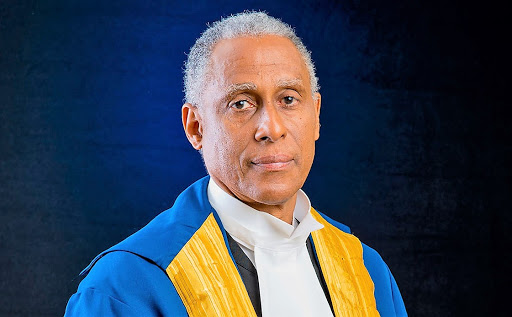CCJ rules against DPP in Marcus Bisram case
The Caribbean Court of Justice (CCJ) on Tuesday ruled that the Director of Public Prosecutions (DPP) Shalimar Ali-Hack, SC does not have the power to direct a magistrate to commit an accused person to stand trial.
The Trinidad-based Court ruled in favour of an appeal filed by Guyanese-American businessman Marcus Bisram which challenged the Guyana Court of Appeal’s ruling that he stand trial for the 2016 murder of Berbice carpenter, Faiyaz Narinedatt.
Bisram’s attorney, Darshan Ramdhanie, QC, had asked the CCJ to strike down Section 72 (1) and (2) (ii) (b) of the Criminal Law (Procedure) Act which empowers the DPP, to, inter alia, direct a magistrate to commit an accused person to stand trial in circumstances where said magistrate, after conducting a Preliminary Inquiry, discharges that accused person.
He had also asked the CCJ to declare a section of the Criminal Law (Procedure) Act unconstitutional.

In delivering the ruling, the President of the CCJ, Justice Adrian Saunders, upheld Ramdhanie’s contentions and allowed the appeal. The CCJ also ordered that the decision made by the Magistrate to dismiss the murder charge against Bisram be restored.
It was also ordered that Bisram may not be committed for trial only on the evidence led before the Magistrate.
However, Justice Saunders said that nothing prevents the DPP from re-arresting and charging Bisram if fresh evidence is found.
“The Court also found that it would be unjust, in all of the circumstances, for Bisram to be made to answer any charge of murder in this case on the same evidence as was presented to the magistrate. However, because Bisram, at least in terms of the law, was never placed in jeopardy, nothing prevents the DPP from having him re-arrested and charged again if fresh evidence was obtained linking him to the alleged murder,” the CCJ contended,
The CCJ also declared that section 72 of the Criminal Law (Procedure) Act violates the separation of powers and is also inconsistent with articles 122A and 144 of the Constitution.
The CCJ contended that if the DPP wants to instruct a magistrate in the future to commit any accused person to stand trial , the DPP will have to move to the High Court first.
“Until the National Assembly makes suitable provision, [Section] 72 is modified to excise those provisions permitting the DPP to direct the magistrate. In lieu thereof, a DPP aggrieved at the discharge of an accused by a magistrate after the whole of the proceedings at a PI, may apply ex parte to a judge of the Supreme Court for an order that the discharged person be arrested and committed, if the judge is of the view that the material placed before the judge justified such a course of action,” Justice Saunders said.
The CCJ reserved its decision on costs.
In June 2021, the CCJ had ordered that Bisram be released from prison until the hearing and determination of his appeal. He also had to forfeit his passport and report one weekly to Commander and or Deputy Commander of Berbice until the determination of the appeal.
As such, the CCJ on Tuesday ordered that Bisram’s passport is returned to him.
On May 31, 2021, the Court of Appeal granted an order filed by the DPP, and overturned the orders granted by High Court Judge, Simone Morris-Ramlall who had ruled that the incarceration of Bisram was unlawful and ordered that he is released.
The orders granted by Justice Morris-Ramlall were for the quashing of the decision of the DPP in which it was directed that Magistrate Renita Singh re-open the preliminary inquiry into the charge against Bisram and committing him to stand trial at the High Court for the offence.
As a result, Bisram had to turn himself over to the police to stand trial for the 2016 murder of Berbice carpenter Faiyaz Narinedatt.
During preliminary inquiry in 2020, Magistrate Singh had initially freed Bisram after she found that the evidence given by the star witness for the prosecution was “unreliable” under cross-examination. However, the DPP ordered the magistrate to commit Bisram to the High Court to stand trial for the indictment.
Bisram was accused of orchestrating the murder of Narinedatt, a 27-year-old father of two, who was killed on November 01, 2016. Narinedatt’s body was found around 03:30 hours on November 01, 2016, on the Number 70 Public Road, Corentyne, Berbice. His death was initially reported to be the result of a hit-and-run accident.
It was later reported that Bisram allegedly made sexual advances towards Narinedatt, who objected. Bisram was initially charged in absentia, while five others – Orlando Dickie, Radesh Motie, Diodath Datt, Harri Paul Parsram, and Niran Yacoob – were charged and later committed to stand trial for the man’s murder.
Bisram, who holds dual citizenship, was extradited from the United States of America on November 21, 2019. He was charged with murder hours after his extradition.






